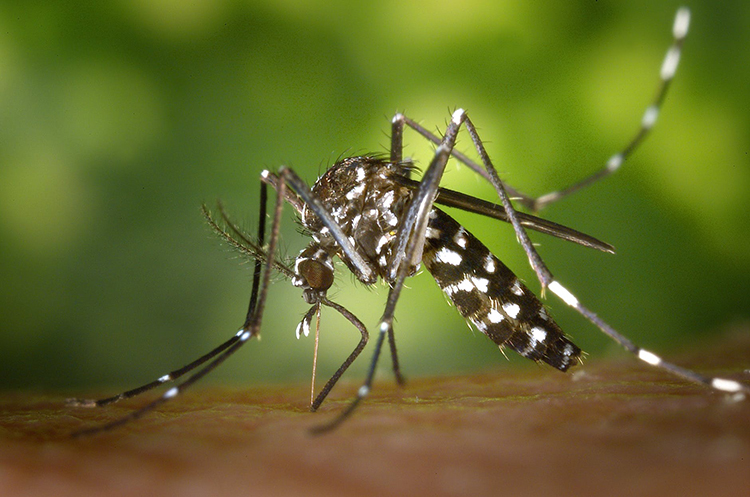
INDIAN RIVER COUNTY — After two local chickens recently tested positive for Eastern Equine Encephalitis, health officials want residents to remain vigilant in protecting themselves against mosquito-born diseases.
The Indian River Mosquito Control District and the Florida Department of Health in Indian River County continue surveillance and protection efforts against the viruses. It was unclear if any local residents had contracted the infection, which is a rare cause of brain infections, according to the Center for Disease Control and Prevention.
Only a few cases of Eastern Equine Encephalitis (EEE) are reported each year in the United States, health officials said. Most cases occur in the eastern or Gulf Coast states.
Health experts said about 30 percent of people with EEE die and that many survivors have ongoing neurological problems. Here are tips from the health department on how residents should practice preventative measures.
DRAIN standing water to stop mosquitoes from multiplying.
- Drain water from garbage cans, house gutters, buckets, pool covers, coolers, toys, flowerpots or any other containers where sprinkler or rainwater has collected.
- Discard old tires, drums, bottles, cans, pots and pans, broken appliances and other items that aren’t being used.
- Empty and clean birdbaths, pet’s water bowls and potted plant sauces at least once or twice a week.
- Protect boats and vehicles from rain with tarps that don’t accumulate water.
- Maintain swimming pools in good condition and appropriately chlorinated. Empty plastic swimming pools when not in use.
COVER doors and windows with screens to keep mosquitoes out of your house.
- Repair broken screening on windows, doors, porches, and patios.
COVER skin with clothing or repellent.
- Clothing – Wear shoes, socks, and long pants and long-sleeves. This type of protection may be necessary for people who must work in areas where mosquitoes are present.
- Repellent – Apply mosquito repellent to bare skin and clothing.
- Always use repellents according to the label. Repellents with DEET, picaridin, oil of lemon eucalyptus, para-menthane-diol, 2-undecanone and IR3535 are effective.
- Use mosquito netting to protect children younger than 2 months old.
Tips on Repellent Use
- Always read label directions carefully for the approved usage before you apply a repellent. Some repellents are not suitable for children.
- Products with concentrations of up to 30 percent DEET (N, N-diethyl-m-toluamide) are generally recommended. Other U.S. Environmental Protection Agency-approved repellents contain picaridin, oil of lemon eucalyptus, para-menthane-diol, 2-undecanone or IR3535. These products are generally available at local pharmacies. Look for active ingredients to be listed on the product label.
- Apply insect repellent to exposed skin, or onto clothing, but not under clothing.
- In protecting children, read label instructions to be sure the repellent is age appropriate. According to the Centers for Disease Control and Prevention (CDC), mosquito repellents containing oil of lemon eucalyptus or para-menthane-diol should not be used on children under the age of three years. DEET is not recommended on children younger than two months old.
- Avoid applying repellents to the hands of children. Adults should apply repellent first to their own hands and then transfer it to the child’s skin and clothing.
- If additional protection is necessary, apply a permethrin repellent directly to your clothing. Again, always follow the manufacturer’s directions.
The Florida Department of Health continues to conduct statewide surveillance for mosquito-borne illnesses, including West Nile Virus, Eastern Equine Encephalitis, St. Louis Encephalitis, Malaria and Dengue, authorities said. Those who want more information on mosquito-borne illnesses can visit the health department website or call their local their local county health department.






